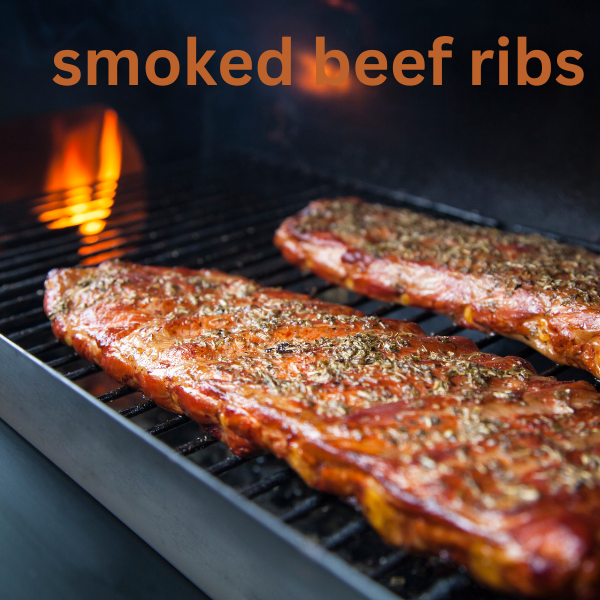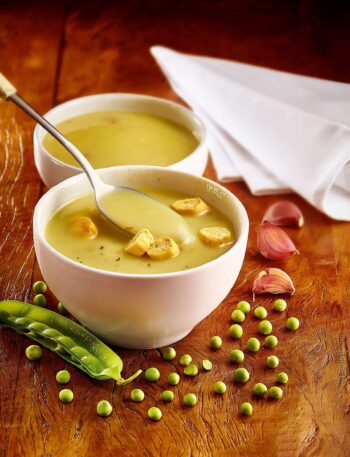
Smoking beef ribs is an art that combines the right cuts of meat, the perfect seasoning, and precise temperature control to create a melt-in-your-mouth barbecue masterpiece. Whether you’re a seasoned pit master or just starting your barbecue journey, mastering the art of smoking beef ribs will elevate your skills and impress your guests. In this guide, we’ll break down three essential tips for creating the perfect smoked beef ribs.
Why Smoked Beef Ribs?
Beef ribs stand out among barbecue favorites for their rich flavor, tender texture, and smoky aroma. Unlike pork ribs, beef ribs have a bolder taste, making them ideal for those who crave a hearty, savory bite. Smoking beef ribs slowly infuses them with deep flavors, transforming them into a culinary experience.
Let’s dive into the three tips that will ensure your beef ribs come out perfect every time.
1. Choose the Right Beef Ribs
Not all beef ribs are created equal, and selecting the right cut is crucial for achieving that tender, flavorful bite.
What Are the Best Beef Ribs for Smoking?
When smoking beef ribs, always choose beef chuck short ribs. These ribs are known for their:
- Marbling: Chuck short ribs are well-marbled with fat, which melts during smoking to keep the meat moist and juicy.
- Size: They are thicker and meatier than other cuts, offering more beef in every bite.
- Flavor: The higher fat content enhances their natural beefy flavor, making them ideal for smoking.
Pro Tip for Buying Beef Ribs
Look for ribs labeled as “plate ribs” or “dinosaur ribs” if you want even bigger portions. Always buy ribs with uniform thickness to ensure even cooking. Avoid ribs with excessive fat caps, as this can hinder the smoke from penetrating the meat.

2. Season Generously for Maximum Flavor
Seasoning beef ribs is about enhancing their natural flavor while creating a delicious crust, also known as the bark.
Keep the Seasoning Simple
The classic Texas-style seasoning consists of just three ingredients:
- Kosher Salt: Enhances the beef’s natural flavors.
- Freshly Ground Black Pepper: Adds a bold, smoky spice.
- Garlic Powder: Brings a subtle depth of flavor.
How to Apply the Seasoning
- Pat Dry: Before seasoning, pat the ribs dry with paper towels to help the rub adhere.
- Generous Coating: Liberally coat all sides of the ribs with the seasoning. Don’t skimp—more seasoning equals a better bark.
- Press It In: Use your hands to press the seasoning into the meat for better adhesion.
Optional Flavor Enhancers
While salt, pepper, and garlic are classic, you can experiment with additional ingredients like:
- Paprika: Adds a smoky sweetness.
- Cayenne Pepper: Brings heat for those who like it spicy.
- Brown Sugar: Caramelizes during smoking, adding a touch of sweetness.
3. Master the Art of Temperature Control
Temperature control is the backbone of perfect smoked beef ribs. The low-and-slow cooking method ensures the ribs break down into tender, smoky perfection.
The Ideal Smoker Temperature
- Maintain a steady temperature of 250°F. This is the sweet spot for rendering fat and breaking down connective tissue without drying out the meat.
Tools You Need
- Reliable Thermometer: A dual-probe thermometer lets you monitor both the smoker temperature and the internal meat temperature.
- Wood Choice: Use oak or hickory wood chips for a robust smoky flavor, or experiment with fruitwoods like apple or cherry for a milder profile.
Tips for Maintaining Consistent Heat
- Preheat Your Smoker: Always preheat your smoker to the target temperature before adding the ribs.
- Don’t Peek Too Often: Opening the smoker lid causes temperature fluctuations. Trust your thermometer!
- Use a Water Pan: Placing a water pan in the smoker helps regulate humidity, preventing the ribs from drying out.
Internal Temperature Goal
Smoke the ribs until they reach an internal temperature of 200°F to 205°F. At this point, the connective tissue has fully broken down, resulting in tender, pull-apart ribs.
Bonus Tips for Perfect Smoked Beef Ribs
The Resting Period
Once the ribs are done, resist the urge to cut into them immediately. Let them rest for at least 30 minutes, loosely tented with foil. This allows the juices to redistribute, keeping the meat moist.
Spritzing for Moisture
Spritz the ribs every hour during smoking with a mixture of:
- Apple cider vinegar and water (1:1 ratio).
This prevents the meat from drying out and adds a tangy flavor.
Serve It Right
Slice between the bones to serve. Pair your smoked beef ribs with classic barbecue sides like:
- Creamy coleslaw.
- Smoked mac and cheese.
- Pickles and cornbread.
Troubleshooting Common Problems
Why Are My Ribs Dry?
- The smoker temperature may have been too high. Stick to 250°F.
- The ribs were overcooked. Use a thermometer to monitor internal temperature.
Why Don’t I Have a Good Bark?
- The seasoning layer may have been too light. Generous seasoning is key.
- The smoker lacked sufficient airflow. Ensure proper ventilation for better bark formation.
SEO Keywords for Smoked Beef Ribs
To optimize this guide for SEO, we’ve used the following keywords:
- Smoked beef ribs.
- Perfect smoked beef ribs.
- Beef chuck short ribs.
- Texas-style smoked ribs.
- Barbecue tips.
- Low and slow cooking.
- Best smoker recipes.
These keywords ensure the blog ranks highly for readers searching for advice on smoking beef ribs.
Conclusion
Smoking beef ribs is a rewarding experience that showcases the magic of low-and-slow cooking. By choosing the right ribs, seasoning them generously, and mastering temperature control, you’ll achieve the perfect balance of flavor, tenderness, and smokiness.
Whether you’re hosting a backyard barbecue or simply treating yourself to a weekend feast, these three tips for smoked beef ribs will guarantee success every time. Don’t forget to experiment with wood types and seasoning blends to make the recipe uniquely yours.
Ready to get started? Fire up your smoker and let the barbecue magic begin

3 Tips for the Perfect Smoked Beef Ribs
Description
Master the art of smoking beef ribs with this foolproof recipe. Featuring a simple salt-and-pepper rub, these smoked beef ribs are cooked low and slow for the ultimate melt-in-your-mouth experience. Perfect for weekend BBQs, family gatherings, or impressing your friends, this recipe is easy to follow and delivers restaurant-quality ribs every time.



